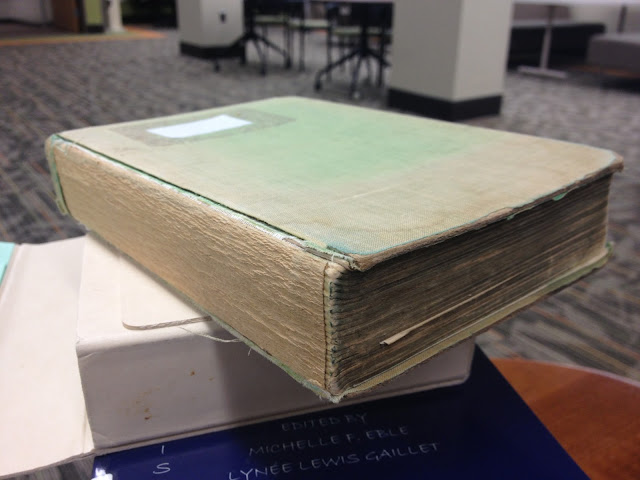One of the main focuses of my academic work is the way women's voices from the American Modernist period have been silenced. There are a lot of ways this happens to female writers: the restraints they're working under prevent them from producing work, they have difficulty finding reputable and/or profitable avenues in which to publish the work they do produce, the work they do publish is evaluated by gender-biased standards and is sometimes given limited printing runs as a result... the list goes on and on.
Perhaps most troubling for me are the examples of women who were widely published and well-respected during their lifetimes but who have largely fallen out of print and out of consideration in the intervening years. These are the women who somehow managed to overcome all the obstacles I named above, who found ways to speak and to be heard, but who could not prevent their words from being subsequently erased.
I can (and will eventually have to) write a lot of words about this silencing and erasure. But I thought some of you who read along with me here might be interested in what it looks like, materially, to do this type of work.
Several weeks ago I had to request a copy of Kay Boyle's My Next Bride through interlibrary loan because we do not have it in our own holdings at UMd. It arrived in a box because the book itself-- a first edition printed in 1934-- was falling apart. I supported it with a pillow the entire time I read it and still could not keep it from falling apart in my hands.
Today, I went to pick up a copy of Mary Hunter Austin's A Woman of Genius. It was then that I realized we had exactly two-- TWO-- books on the shelves that are written by or specifically about Austin. In a library that has four bookcases, with six or seven shelves each, shelves devoted to William Faulkner.
I realize that we may have several more books about Austin in the holdings that have been checked out, but as you can see, there was no big gap on the shelf from their absence. This is one of the most prolific female American writers of the 20th Century, and she has been all but forgotten for everything she published except for The Land of Little Rain. For me, seeing these two books alone on this shelf felt like getting punched in the gut.
But perhaps I should accept it, instead, as a kick in the ass. Due to some changes in my advisor's travel schedule, I have 4 days to write the first draft of my prospectus, start to finish. In other words, I have until Monday to figure out how to articulate what specific research project my dissertation will undertake, how it relates to the current scholarship in my field, and how it will significantly improve upon that scholarship. Here goes nothing.


.JPG)
Good luck with your writing, Liz!
ReplyDelete